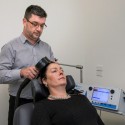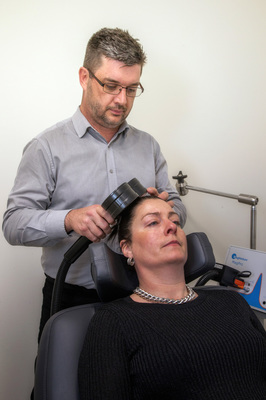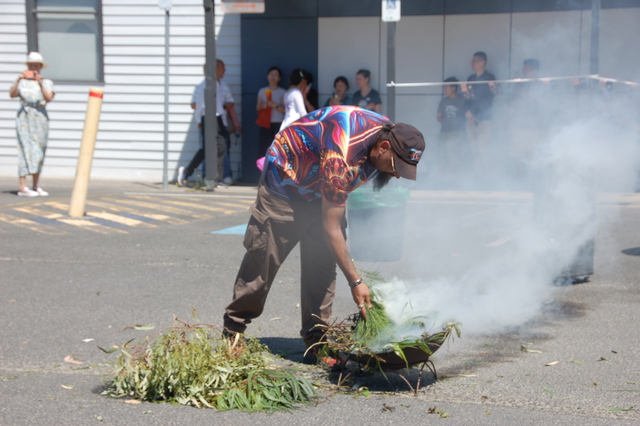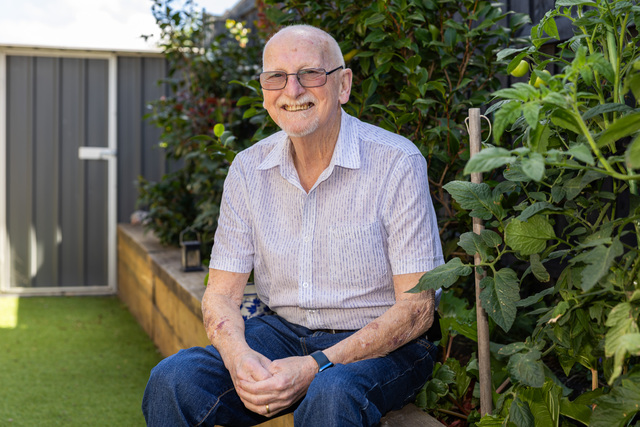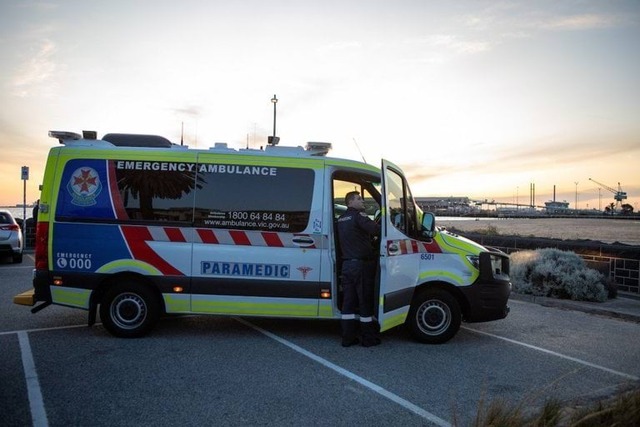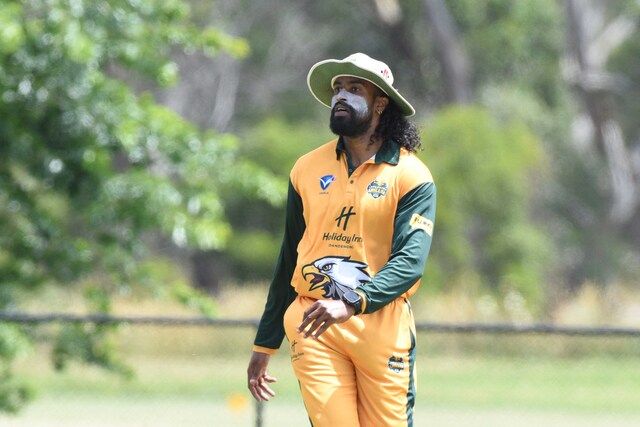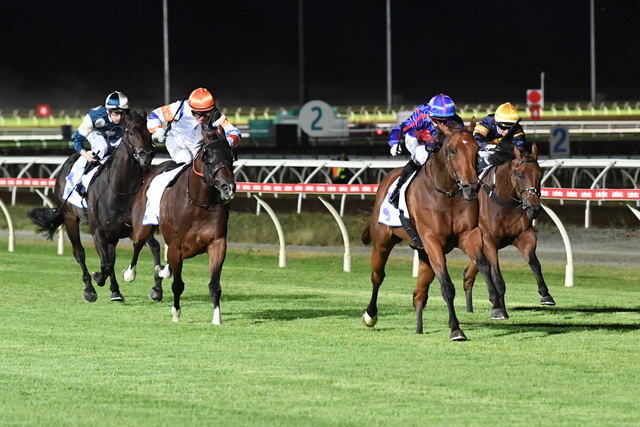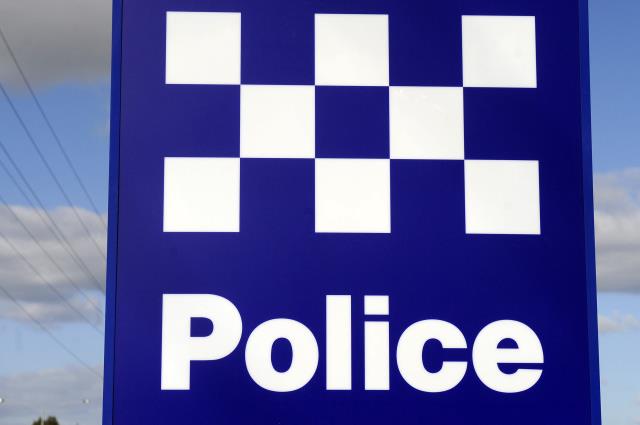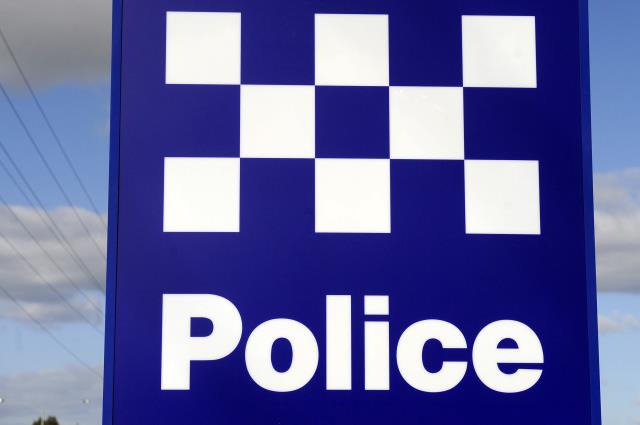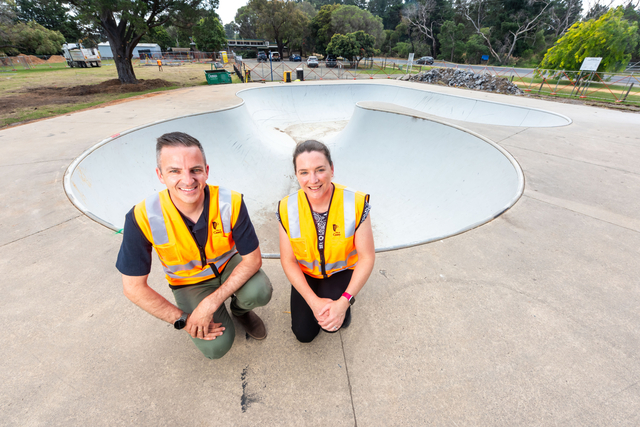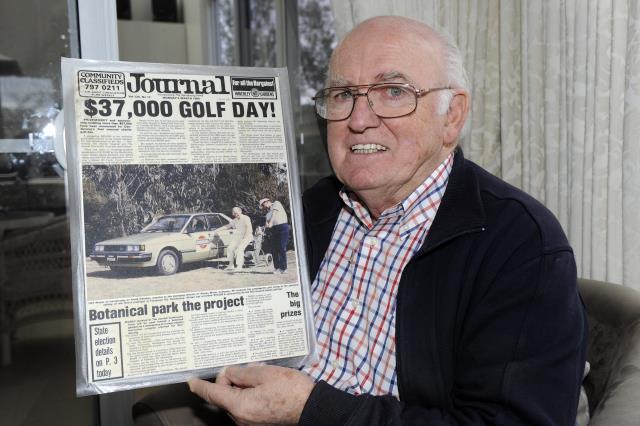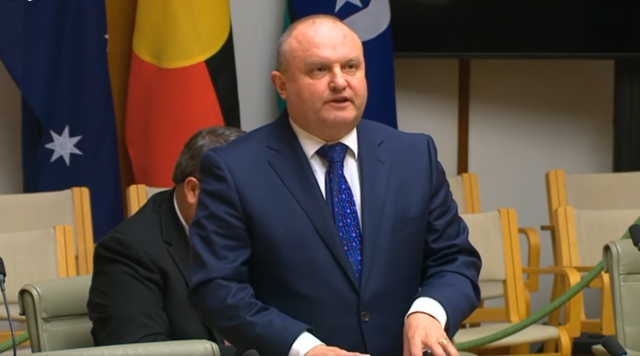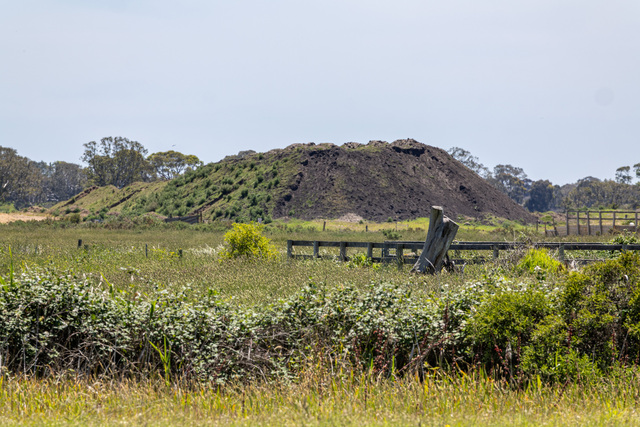By CASEY NEILL
MAGNETS have changed Jaye-Ann Olarenshaw’s life.
The patient at St John of God Pinelodge Clinic in Dandenong said repetitive transcranial magnetic stimulation (rTMS) had freed her from alcoholism and depression.
“I wasn’t all that well,” she said.
“I suffered from depression but also from alcoholism.
“So I’d be an inpatient downstairs for withdrawal or upstarts for my depression.
“I heard the other patients who’d been receiving the treatment give quite positive feedback.
“I asked them a lot of questions. It seemed that it was ‘why not give it a try’.
“You weren’t being given any extra medication. There seemed to be no significant side effects.
“It was very non-invasive.
“The only thing is you have to come in for the first 20 treatments, which is three weeks in hospital.”
Ms Olarenshaw asked consultant psychiatrist Patrick Tolan if she could give rTMS a try.
“It’s a therapy that is for the treatment of what we call resistant depression, so people whose depression isn’t getting better with medications and therapy, which is up to a third of patients,” he said.
“It stimulates the frontal part of the brain that is thought to be underactive in people with depression.
“We’ve had the program here for two years with quite a number of people who’ve come through.”
He said patients usually completed a course of 20 treatments as an in-patient and then returned for top-up treatments once a month.
“It’s in addition to regular medications,” Dr Tolan said.
“Roughly half of the people report a significant improvement in their mood.
“Of the remaining half, about half have some improvement.”
He said the treatment had been researched in Melbourne for the past 15 to 20 years but had really only become mainstream in the past couple.
“Currently about 10 to 15 people a day are getting treatment here,” he said.
Ms Olarenshaw completed the initial 20 treatments in March last year.
“I then continued on with the maintenance every month, coming in for the top-ups,” she said.
“I was quite a dependent alcoholic.
“It’s a horrible way to live your life.
“By April I was not drinking.
“You have quite obsessive thinking about alcohol and drinking which is all-consuming and very depressing.
“Those thoughts were completely gone.
“I haven’t picked up a drink since then.
“My depression has lifted.
“I was on a lot of medications but I dropped off a few of them.
“I’m now on no psychiatric medication.”
Ms Olarenshaw said she used to feel very isolated.
“I would be happy to stay at home and not go out and do things,” she said.
“Over the past year I’m wanting to get out, I’ve got myself a job, I’m looking for more work and I’ve got a little business of my own.
“Life is really changing for me because of the treatment.”
Ms Olarenshaw said the treatment took half an hour.
“I sit back in a comfortable chair. The magnet is put over the top of my head.
“You just feel a slight pressure on your head.
“Once the machine’s turned on you feel a tapping sensation on top of your head and hear a tapping sound.
“I watch TV or listen to the radio.
“It doesn’t change the way I’m thinking, it doesn’t hurt me in any way.
“After the treatment I’m up and ready to go.”
“Not having to take medication is great because medications themselves have their own side-effects,” she said.
“One of the medications I was on, you would feel very sleepy, it would make you very sleepy.
“It was very hard to function.
“You couldn’t get up and out and it affected your motivation.
“Not having to be on those medications now is a real freedom.
“I’ve been having to take medication since I was 16. I’m 40 now.”
Dr Tolan said common side-effects from rTMS were headache, twitches, light-headedness fatigue, and scalp irritation.
“The main concern is about it causing seizures,” he said.
“A person with epilepsy, this generally wouldn’t be a treatment for them.
“I think Jaye has done very, very, very well,” he said.
“Jaye is one of the best responses we’ve had.”
He said the treatment hadn’t found its way into the mainstream yet but was available in the private sector.
“I don’t think it’s a treatment that suits everybody,” he said.
“Psychiatric conditions and depression are difficult to treat, so it’s important to have a range of treatments on offer.”

